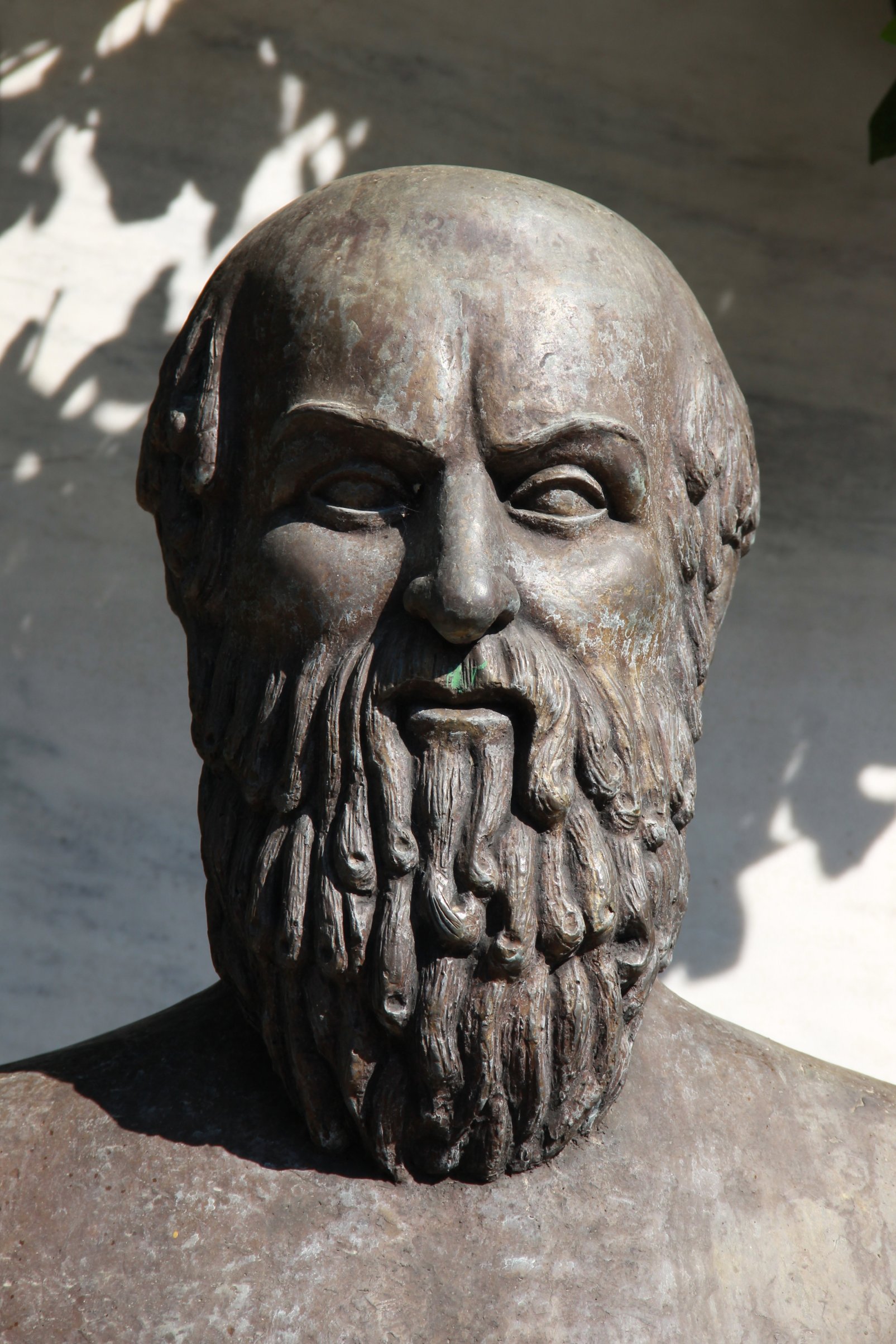Frases célebres de Esquilo
Esquilo Frases y Citas
Agamêmnon
“No es soportable. Más vale morir. La muerte vale más que la sumisión a la tiranía.”
Fuente: fragmento de un texto entre Atenea y las Erinias en la tercera parte de la "Orestíada".
Prometeo Encadenado
Esquilo: Frases en inglés
“What is pleasanter than the tie of host and guest?”
Fuente: Oresteia (458 BC), The Libation Bearers, line 702
Fuente: Seven Against Thebes (467 BC), lines 200–201 (tr. E. D. A. Morshead)
“The walls of Athens are impregnable,
Their firmest bulwarks her heroic sons.”
Fuente: The Persians (472 BC), line 349 (tr. Robert Potter)
“Obedience mother is of good success,
Sure pledge of safety.”
Fuente: Seven Against Thebes (467 BC), lines 224–225 (tr. Anna Swanwick)
“But when the dust has drawn up the blood of a man, once he is dead, there is no return to life.”
Fuente: Oresteia (458 BC), Eumenides, lines 647–648 (tr. Herbert Weir Smyth)
“Death is better, a milder fate than tyranny.”
Variant translation: Death is softer by far than tyranny.
Fuente: Oresteia (458 BC), Agamemnon, line 1364
“Through want of heart fear seizes on my tongue.”
Fuente: Seven Against Thebes (467 BC), line 259 (tr. Anna Swanwick)
“A prosperous fool is a grievous burden.”
Fragment 383, reported in Bartlett's Familiar Quotations, 10th ed. (1919)
“Since it most profits that the truly wise
Should seem not wise at all.”
Fuente: Prometheus Bound, line 385 (tr. Elizabeth Barrett Browning)
“In war, truth is the first casualty.”
This is often attributed to U.S. Senator Hiram Johnson, but does not appear anywhere in his speeches. Arthur Ponsonby#Falsehood in Wartime (1928) quoted: "When war is declared, Truth is the first casualty", but the first recorded use seems to be by Philip Snowden in his introduction to Truth and the War, by E. D. Morel. London, July 1916: "'Truth,' it has been said, 'is the first casualty of war.'" Samuel Johnson#The Idler (1758–1760) expressed a similar idea: "Among the calamities of war may be justly numbered the diminution of the love of truth, by the falsehoods which interest dictates and credulity encourages."
Misattributed
“Justice turns the scale
For those to whom through pain
At last comes wisdom's gain.”
Fuente: Oresteia (458 BC), Agamemnon, lines 250–251 (tr. E. H. Plumptre)
“None of their own will choose a bond-slave's life.”
Fuente: Oresteia (458 BC), Agamemnon, line 953 (tr. E. H. Plumptre)
“Bitter, being first to tell you bitter news.”
Fuente: The Persians (472 BC), line 253 (tr. Janet Lembke and C. J. Herington)
“It is not the oath that makes us believe the man, but the man the oath.”
Fragment 385, reported in Bartlett's Familiar Quotations, 10th ed. (1919)
“I know how men in exile feed on dreams of hope.”
Fuente: Oresteia (458 BC), Agamemnon, line 1668
“True marriage is the union that mates
Equal with equal.”
Fuente: Prometheus Bound, line 890 (tr. G. M. Cookson)
Fuente: Seven Against Thebes (467 BC), lines 397–399 (tr. E. D. A. Morshead)
“When we know clearly, then should we discuss:
To guess is one thing, and to know another.”
Fuente: Oresteia (458 BC), Agamemnon, lines 1368–1369 (tr. E. H. Plumptre)
“She [Helen] brought to Ilium her dowry, destruction.”
Fuente: Oresteia (458 BC), Agamemnon, line 406
“Easy, whoever out of trouble holds his
Foot, to admonish and remind those faring
Ill.”
Fuente: Prometheus Bound, lines 263–265 (tr. Henry David Thoreau)
“If I grieve,
I do not therefore wish to multiply
The griefs of others.”
Fuente: Prometheus Bound, lines 345–346 (tr. Elizabeth Barrett Browning)
“Be boastful and be bold, like cock beside his partner.”
Kόμπασον θαρσῶν, ἀλέκτωρ ὥστε θηλείας πέλας.
Fuente: Oresteia (458 BC), Agamemnon, line 1671 (tr. Anna Swanwick)
“God’s best gift Is a mind free from folly”
Phillip Vellacott, The Oresteian Trilogy, Penguin 1973 ( Google Books https://books.google.com.au/books?id=tuRiOESBVjkC)
Oresteia (458 BC), Agamemnon
“Glances whose gentle fire Bestowed both wound and balm;”
Phillip Vellacott, The Oresteian Trilogy, Penguin 1973 ( Google Books https://books.google.com.au/books?id=tuRiOESBVjkC)
Oresteia (458 BC), Agamemnon
